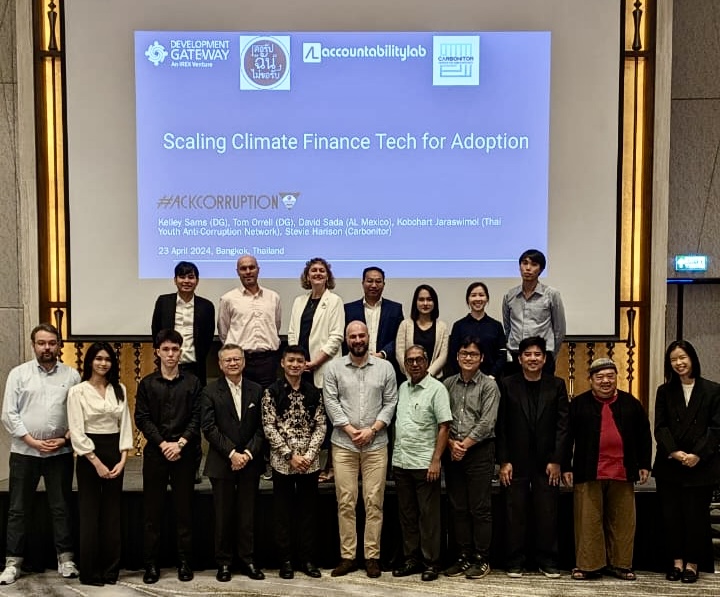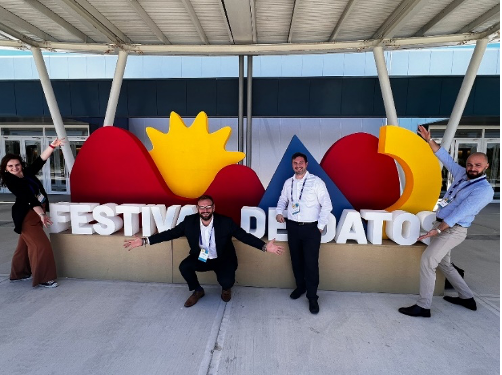From Goal to Progress: Making the Most of Data
As the formal adoption of the Sustainable Development Goals (SDGs) approaches, we already know what the SDGs will be – now it’s time to talk seriously about how each citizen, organization, and government can do its part to make the goals reality.
The SDGs’ antecedents, the Millennium Development Goals (MDGs), have held center stage for the past 15 years as a rallying cry for mobilizing ideas, partnerships, and resources in pursuit of a better world. Some goals, such as access to safe drinking water and school enrollment gender ratios, have met or exceeded MDG targets; others, including nourishment and maternal mortality rates, have fallen short. Progress against these goals varies country-by-country and region-by region. And some researchers dispute whether the MDGs can claim credit for these gains at all.
What are causing these gaps in our understanding around what gains have really been made (and why)? These gaps can in large part be traced to a dearth of good data. In The Millennium Development Goals Report released by the United Nations this year, “data gaps remain… poor data quality, lack of timely data and unavailability of disaggregated data… are among the major challenges [to MDG monitoring].” In short, poor (or nonexistent) data will keep us from quantifying the impact of many MDGs.
Pragmatically, if the international community doesn’t have the data it needs to measure MDG progress, it follows that the people who fund, implement, and benefit from development finance probably don’t have the data needed to maximize their effect.
For the next 15 years, we must learn from our MDG experiences to meet the SDGs – all 17 goals, 169 targets, and 300+ indicators. What does that mean in practice? Actively incorporating lessons learned from the past 15 years into plans and programs at the local, national, regional, and global levels. A key MDG takeaway must be that timely, accurate, and shareable data are necessary to ensure effective, innovative, and concerted interventions. In light of the “Data Revolution” movement that seeks to remedy these data gaps, we suggest that particular emphasis must be placed on the following areas and use cases of data for development:
- Data baselines: without accurate knowledge of the current state-of-play, creating achievable goals – let alone monitoring and evaluation metrics – becomes impossible
- Data collection and management: collecting the right information in a way that is transparent, not overly-burdensome, and that can be combined with other national and international datasets can support more timely and comprehensive analyses
- Data sharing: effectively communicating development information – particularly results data – can help ensure more iterative and impactful programs
- Data for human-centered design: developing solutions which respond to demonstrated needs will ensure the development community remains responsive – not reactive – to the challenges that lay ahead
- Data-driven engagement: when used as an avenue for multi-stakeholder engagement, data can ensure a more holistic and sustainable development process
The international community has an opportunity to use the SDGs as a catalyst for more effective, better-targeted, evidence-based development efforts. Over the coming weeks, we’ll be sharing dedicated posts related to each of the topics above; so stay tuned for updates.
Share This Post
Related from our library

The Future of Technology Governance and Global Development: Why DG Brought DataReady In-house
DG is excited to announce we now have more robust data governance advisory services with the recent integration of DataReady.

Letting the Sunshine in: Building Inclusive, Accountable, and Equitable Climate Finance Ecosystems
In April, DG, HackCorruption, and the Thai Youth Anti-Corruption Network hosted a roundtable in Bangkok to discuss climate financing. This blog explores the main takeaway: a multi-disciplinary and multi-stakeholder approach that prioritizes local contexts, inclusive governance, transparency, accountability, and equitable distribution of resources is essential to impactful climate financing.

Developing Data Systems: Five Issues IREX and DG Explored at Festival de Datos
IREX and Development Gateway: An IREX Venture participated in Festival de Datos from November 7-9, 2023. In this blog, Philip Davidovich, Annie Kilroy, Josh Powell, and Tom Orrell explore five key issues discussed at Festival de Datos on advancing data systems and how IREX and DG are meeting these challenges.